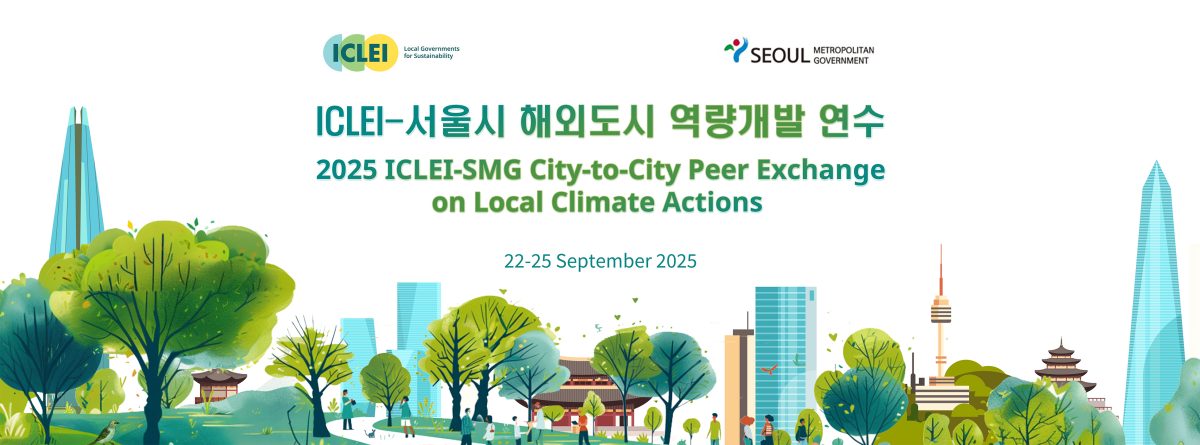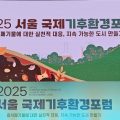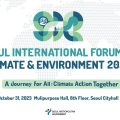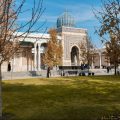South American Cities and Seoul Jointly Explore New Paths for Green Development

From September 21 to 25, 2025, the “2025 City-to-City Peer Exchange on Local Climate Actions” was successfully held in Seoul, South Korea. The ICLEI East Asia Secretariat and the Climate & Environment Headquarters of the Seoul Metropolitan Government co-hosted the event. The program brought together six high-level environmental officials from five South American nations to explore Seoul’s pioneering climate initiatives through thematic lectures, site visits, and collaborative forums, forging a strong foundation for inter-regional cooperation.
The participants were Saralux Valbuena, Climate Change Advisor at the Secretariat of Environment of Bogotá, Colombia; Santiago Fernando Sandoval Gallardo, Secretary of Environment of Quito, Ecuador; Melisa Elizabeth Díaz Acuña, Director of Coordination and Sustainable Development at the Secretariat of Environment and Circular Economy of Córdoba, Argentina; Nicolás Orlando Azócar Rogel, Head of International Affairs for the Municipality of Renca, Chile; Patrícia Miranda Meneses, Advisor to the Mayor’s Office of Barcarena, Brazil; and María Rocío Novello, Institutional Relations and Advocacy Coordinator at the ICLEI Argentina Office. The exchange program received strong support from the ICLEI South America Secretariat.

Opening Ceremony
The exchange was motivated by the urgent need for local governments to collaborate in addressing global climate change. As major contributors to greenhouse gas emissions and the direct recipients of climate change impacts, cities’ governance capabilities are crucial for global sustainable development. Seoul, a benchmark for green and sustainable development in Asia, has extensive experience in areas such as carbon neutrality, resource circulation, and air quality improvement. Meanwhile, South American cities face numerous environmental governance challenges in their urbanization processes. This knowledge sharing and mutual learning in climate action is not only a positive response to global climate governance goals but also a valuable opportunity for cities in different regions to explore suitable climate solutions.

The delegation visited the Seoul Traffic Operation Center (TOPIS)
During the event, the six South American delegates engaged in in-depth learning on Seoul’s core climate governance topics. On the first day, September 22, opening remarks were delivered by Min Kwon, Deputy Mayor for the Climate & Environment Headquarters of the Seoul Metropolitan Government; Shu ZHU, Regional Director of ICLEI East Asia; and Santiago Fernando Sandoval Gallardo, Secretary of Environment of Quito, Ecuador. In subsequent lectures on “Seoul’s Carbon Neutrality and Green Growth Basic Plan” and “Clearer Seoul 2030,” the delegates learned about Seoul’s series of measures for reducing greenhouse gas emissions and adapting to climate change, as well as detailed explanations of its initiatives for reducing vehicle emissions and managing fine particulate matter. That afternoon, the delegates visited the Seoul Traffic Operation Center (TOPIS) to see firsthand how the smart traffic management system uses big data for real-time monitoring and dispatch to optimize urban traffic efficiency and reduce carbon emissions.

The delegation learned about Seoul’s Carbon Neutrality and Green Growth Basic Plan
The exchange program was deeply integrated with the 2025 Seoul International Forum on Climate and Environment (SIFCE), held on September 23. This year’s forum was held under the theme “Promoting resource circulation through eco-friendly food waste management”. Melisa Elizabeth Díaz Acuña, Director of Coordination and Sustainable Development from the Secretariat of Environment and Circular Economy of Córdoba, Argentina, spoke as a representative of South America, sharing Córdoba’s practices and experiences in food waste management. Additionally, the delegates participated in a guided tour of the Cheonggyecheon River and the Seoul City Hall “Tong-Tong Tour,” gaining an understanding of the diverse dimensions of Seoul’s green development from the perspectives of urban regeneration and historical-cultural preservation.

The delegation visited the Seoul City Hall

The delegation visited Cheonggyecheon River
On the third day, a lecture on creating a “Sustainable Resource-Circulating City” detailed the key measures of the “Zero Waste Seoul Initiative,” including its waste fee system, and efforts to reduce single-use plastics and food waste. Afterwards, the delegates visited the Seoul Upcycling Plaza and the Seoul Sewerage Science Museum to experience waste upcycling practices and wastewater treatment and recycling technologies, gaining a direct sense of Seoul’s innovative achievements in the zero-waste field.

The delegation visited the Upcycling Plaza

Seoul Sewerage Science Museum
At the closing ceremony on September 25, the representatives from the South American cities shared their insights from the exchange and discussed future actions. They held a preliminary discussion on the feasibility of strengthening cross-regional climate cooperation projects, taking into account the climate challenges their own cities face. The event concluded with the hosts awarding certificates of completion to all delegates, marking the successful end of this cross-regional climate exchange.

Closing Ceremony
Through this event, the South American delegates gained systematic insights into Seoul’s proven models for carbon neutrality, waste management, and smart transportation. More importantly, the event laid the groundwork for a new cross-regional climate governance network. Moving forward, ICLEI will continue to foster these city-to-city exchanges, transforming shared knowledge into tangible climate action and strengthening the global response to climate change at the local level.




